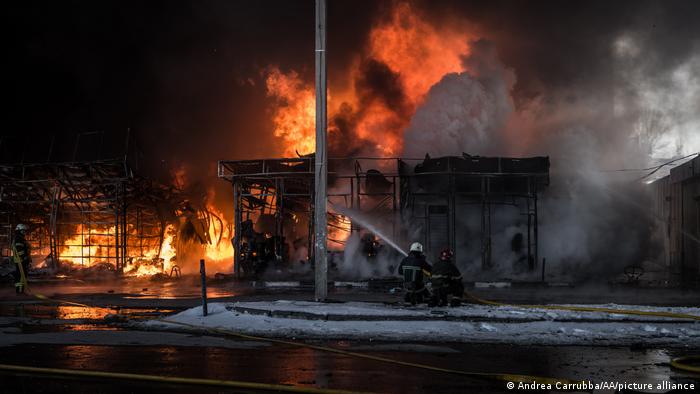
Russia's war against Ukraine is entering its fourth week. Apart from the news of fighting and victims, there are reports of talks between the governments in Moscow and Kyiv. Having met a few times in person in Belarus, the negotiators are now talking via video link.
So far, to no avail. Russian President Vladimir Putin has said that he will not give up his "plan" until his key demands are met: "demilitarization," "denazification," as well as a "neutral status" for Ukraine. He has also called on Kyiv to recognize Crimea as Russian territory, as well as the independence of the self-declared "people's republics" of Donetsk and Luhansk. For his part, Ukrainian President Volodymyr Zelenskyy showed a willingness to concede that Ukraine will not become a member of NATO.
While few concrete details have emerged from the negotiations, an article in the British Financial Times this week caused a stir. It said that Russia and Ukraine had made "significant progress on a tentative peace plan" and were discussing a 15-point draft deal. citing to people briefed on the talks, it reported that the deal involved "Kyiv renouncing its ambitions to join NATO and promising not to host foreign military bases or weaponry in exchange for protection from allies such as the US, UK and Turkey." Ukrainian delegates say that Kyiv needs legally binding commitments, the report said.
Alyona Hetmanchuk, head of the Kyiv-based think tank New Europe Center, said it was an "absurd" situation. "First, one has to agree to a cease-fire, and then one can conduct concrete negotiations. But this is what it is like today: The more intensive the negotiations are, the more gunfire there is," she said.
She said that the fact that Ukraine was willing to agree to neutral status was its biggest concession. "Not only because NATO membership is one of the goals of the constitution, but because it has the support of an unprecedented majority," she said. She explained that the concession had been linked to security guarantees that would effectively replace Article 5 of the NATO treaty, its principle of collective defense.
But she said the proposal was "quite delusional" because NATO states had not indicated they were willing to give Ukraine such guarantees. She said that Russia was also unlikely to agree to such an offer.
She said that for Kyiv, the red line would be the acknowledgment of Crimea and Donbas: "That would be a complete capitulation."
Hetmanchuk doubted that the talks would be successful but said they were important for "improving the humanitarian situation and showing the world that Ukraine is willing to make certain compromises."